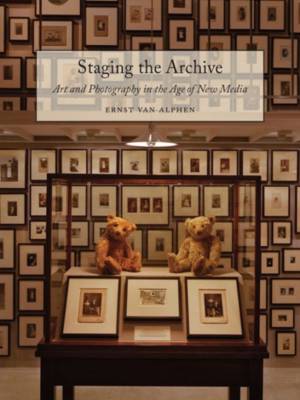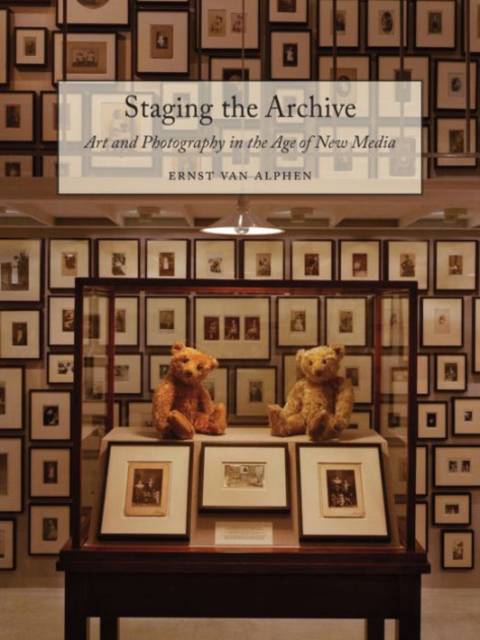
- Afhalen na 1 uur in een winkel met voorraad
- Gratis thuislevering in België vanaf € 30
- Ruim aanbod met 7 miljoen producten
- Afhalen na 1 uur in een winkel met voorraad
- Gratis thuislevering in België vanaf € 30
- Ruim aanbod met 7 miljoen producten
Zoeken
€ 35,95
+ 71 punten
Omschrijving
Dedicated to art practices that mobilize the model of the archive, Staging the Archive demonstrates the ways in which such "archival artworks" probe the possibilities of what art is and what it can do. Through a variety of media, methodologies and perspectives, the artists surveyed here also challenge the principles on which the notions of organization, evidence, and documentation are built. The earliest examples of the modern archival artwork were made in the 1930s, but only since the 1960s have artists really embraced archival principles to inform, structure, and shape their works. This includes practices that consist of archive construction, archaeological investigation, record keeping, and the use of archived materials, but also interrogations of the principles, claims, and effects of the archive. Staging the Archive shows how artists read the concept of the archive against the grain, questioning not only what the archive is and can be but what materials, images, or ideas can be archived. Ernst van Alphen examines these archival artists and artworks in detail, setting them within their social, political, and aesthetic contexts. Exploring the works of Marcel Duchamp, Marcel Broodthaers, Christian Boltanski, Annette Messager, Fiona Tan, and Sophie Calle, among others, he reveals how modern and contemporary artists have used and contested the notion of the archive to establish new relationships to history, information, and data.
Specificaties
Betrokkenen
- Auteur(s):
- Uitgeverij:
Inhoud
- Aantal bladzijden:
- 224
- Taal:
- Engels
Eigenschappen
- Productcode (EAN):
- 9781780233727
- Verschijningsdatum:
- 15/02/2015
- Uitvoering:
- Paperback
- Formaat:
- Trade paperback (VS)
- Afmetingen:
- 178 mm x 181 mm
- Gewicht:
- 539 g

Alleen bij Standaard Boekhandel
+ 71 punten op je klantenkaart van Standaard Boekhandel
Beoordelingen
We publiceren alleen reviews die voldoen aan de voorwaarden voor reviews. Bekijk onze voorwaarden voor reviews.











